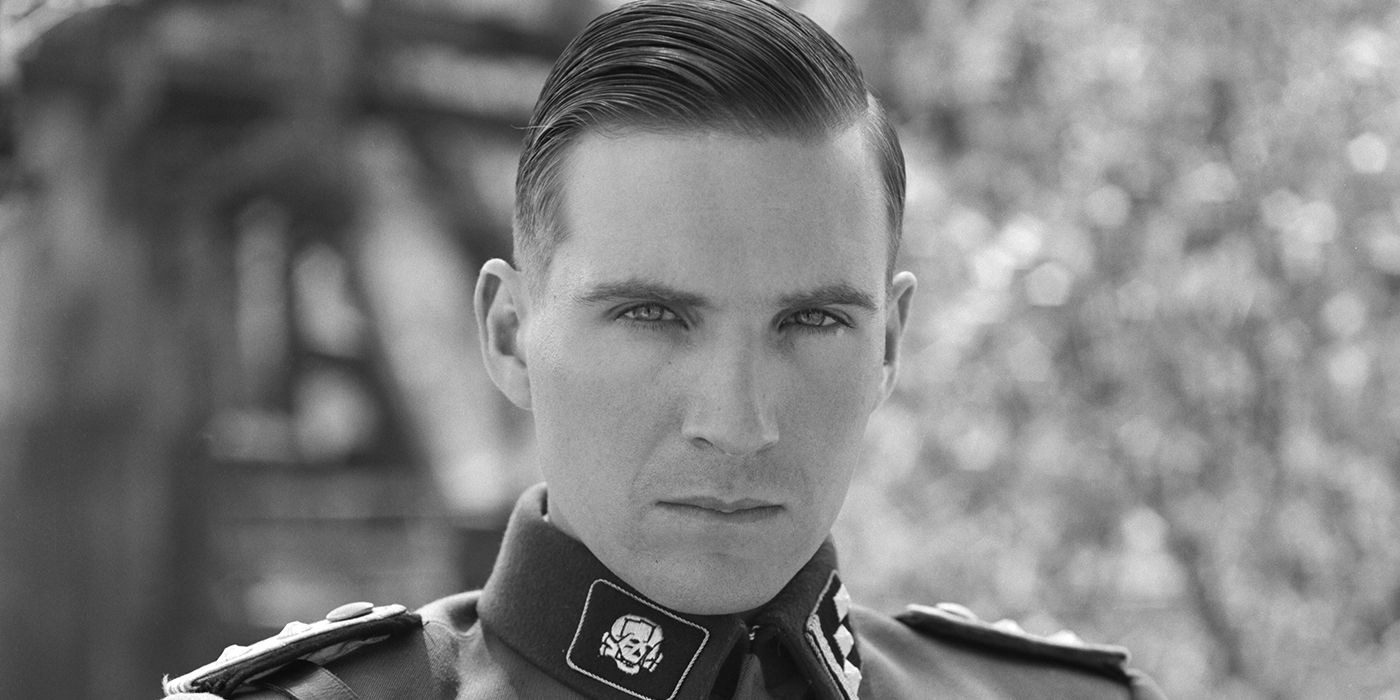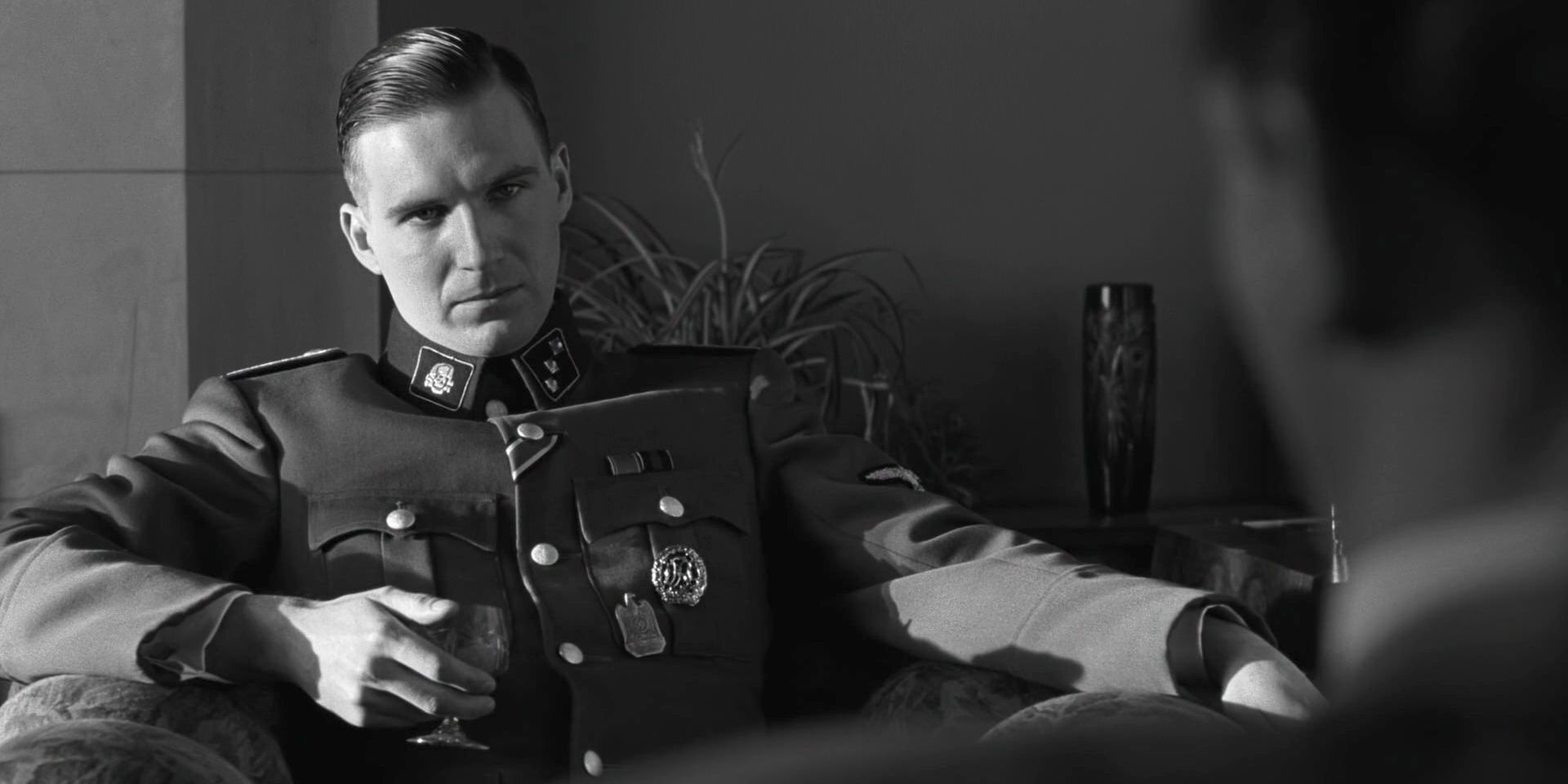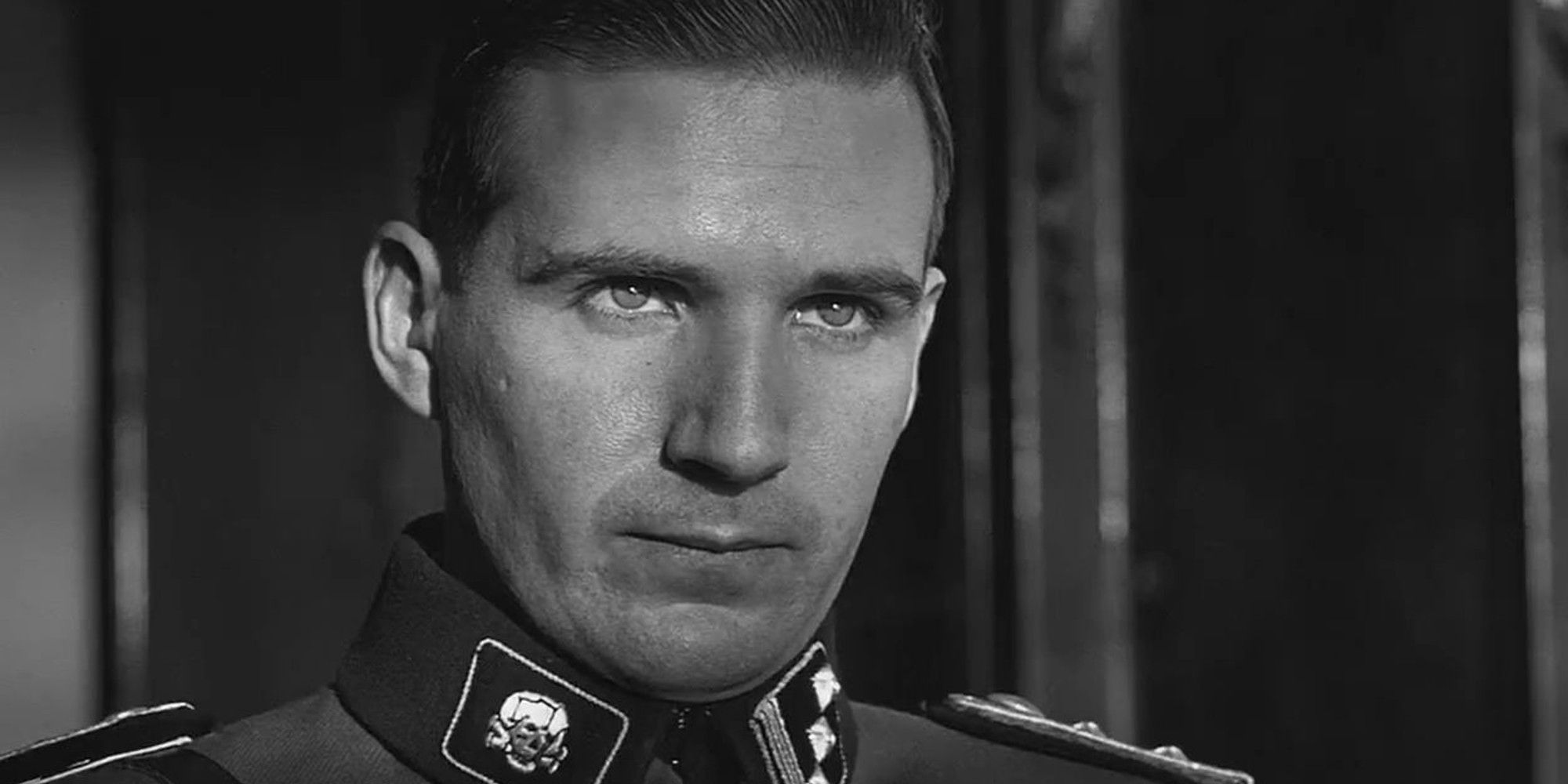Thirty years ago, Steven Spielberg rolled cameras on what would be his most personal film to date with Schindler's List. Based on Thomas Keneally's 1982 book, Schindler's Ark, the epic tale about a German businessman (Liam Neeson) saving the lives of 1,100 Jews amid the Holocaust remains one of cinema's most harrowing and reverential historical dramas. Setting a high bar for such films with its realistic depiction of one of the 20th century's most heinous events, the importance of the film's story and messaging was never lost on Spielberg. In a 25th anniversary retrospective, the filmmaker told NBC News, "I don't think I'll ever do anything as important. So this, for me, is something that I will always be proudest of."
A box-office hit that took home seven Oscars, including Spielberg's first for Best Director, Schindler's List is renowned for a variety of reasons. Among the film's most memorable and unsettling qualities is Ralph Fiennes' performance as Amon Göth, a brutal Nazi commandant who presided over industrialized murder in German-occupied Poland. As the story's central villain, Fiennes brought the real-life figure to life in a horrific manner that serves as a sobering reminder of man's inhumanity to man. What makes Göth particularly disturbing is not just the repulsive acts he commits throughout the narrative, but also the simple notion that he's a human being and not a monster created in a lab.
Casting Ralph Fiennes
Stepping into the shoes of a character like Amon Göth would be an intimidating prospect for any actor. Hailing from the stage and with only a few film credits to his name, Fiennes blew Spielberg away in his audition, and the filmmaker remembers, "Ralph did three takes. I still, to this day, haven't seen take two or three. He was absolutely brilliant. After seeing take one, I knew he was Amon. I saw sexual evil. It is all about subtlety. There were moments of kindness that would move across his eyes and then instantly run cold." This instant and startling change in character and behavioral temperature would ultimately be a recurring trademark of Fiennes' performance, with the actor effortlessly shifting between a presentation resembling something vaguely human to that of complete and utter evil.
In reflecting on his decision to play Amon Göth, Fiennes has referred to it as a "no-brainer." The actor recalls, "I think there are moments you're lucky to have as an actor when you're asked to be part of something that feels like it's going to be quite momentous. I didn't even say yes. I didn't even need to say yes -- it was a given." Fiennes has also been on the record regarding the challenges inherent in bringing such a heinous man to life on-screen. Regarding the extensive research he undertook, as well as the process of physically transforming himself into a hateful glutton, the actor has stated, "I think there was a price to pay for this one. When you're investigating behavior that is that negative so intensely for three months, then you feel sort of peculiar because you might have at moments enjoyed it and at the same time you feel slightly soiled by it. It just throws up all kinds of question marks, about acting, about human behavior, about how all of that is probably a lot closer to the surface than we like to think."
The Personification of Evil
Villainous characters and threats have taken many forms in film history. Whether dealing with supernatural entities, alien lifeforms, or morally bankrupt human beings, viewers can typically console themselves by remembering these cinematic representations are products of imagination. Such an assurance, however, only extends so far and can't alleviate the uniquely disturbing nature of villains based on historical figures. Schindler's List's characterization of Amon Göth is no exception. In undertaking the re-creation of a number of people, places, and events for his film, Spielberg pulled no punches in giving audiences a startling depiction of evil. Though Göth is a cog in a much larger wheel, he provides the film with a face representative of the Nazi party and all its ruthless exploits.
Cold, indeed, as well as manipulative, nefarious, and downright nasty in his treatment of those he deems inferior, Amon Göth is one of modern cinema's most evil antagonists. Possessing a steely-eyed gaze that suggests an ever-present threat and imminent danger, Fiennes' turn as the Nazi officer illustrates a man totally disconnected from the better angels of human nature. Whether he's shooting innocent people from his villa balcony, casually arranging the transportation of thousands to death camps, or playing sinister mind games with those under his domineering command, Göth's disregard for life and anything approaching basic decency is on full display whenever he's on-screen.
Göth's Soul Is Hopelessly Corrupted
One of the film's most memorable exchanges occurs between Amon Göth and Oskar Schindler. A drunken Göth commends the businessman's ability to exert control over his vices, expounding on the idea that control is the ultimate form of power. This leads Schindler to wax philosophical about power dynamics between people as they relate to the notion of mercy. He tells Göth, "Power is when we have every justification to kill...and we don't." Schindler then relays an anecdote about the merciful nature of a leader who pardons others and, for the briefest of moments, one gets the impression that perhaps a chord has been struck with the Nazi officer. In a final attempt to appeal to the idea of Göth possessing a merciful quality, Schindler even bestows a title upon the commandant: Amon the Good.
In the following scene, Göth goes about his usual dehumanizing routine. After encountering a boy who didn't adequately clean a bathtub in his villa, however, the commandant suddenly remembers his previous exchange with Oskar Schindler. Rather than berate, beat, or kill the boy, Göth "pardons" him and sends him on his way. The subsequent moment displays Göth attempting to engage with his conscience and a sense of morality. Staring into the mirror with his hand outstretched, a look of self-admiration on his face, he tries embracing mercy as if he's trying on a piece of ill-fitting clothing. In the blink of an eye, he's distracted by the state of his fingernails and comes crashing back to his horrid reality, possibly even disgusted with himself for entertaining what he no doubt considers useless notions of mercy and empathy. Just moments after dismissing the young boy, Göth shoots him dead.
Göth's Worst Enemy Is Himself
Another scene sees Göth in a disturbing encounter with his maid, Helen Hirsch (Embeth Davidtz). What Spielberg referred to as Göth's "sexual evil" is obvious, as the officer is clearly attracted to Helen, but can't reconcile that attraction with the toxic belief that she's an inferior human being unworthy of decency. The threat of violence, and perhaps death, lingering below the scene's surface is chilling, and Göth's inner conflict is ever-apparent as his temperament shifts from faux warmth to predatory aggression. Conflicted and tormented by the contradictory emotions he's experiencing, Göth lashes out and resorts to familiar behavior, succumbing once again to his demonic nature and savagely beating his maid. The scene's use of parallel editing, cutting back and forth between Helen's beating and the joyous celebration of a Jewish wedding, further highlights Göth's animalistic tendencies and sends chills down viewers' spines.
Truth Is More Horrifying Than Fiction
The dark side of humanity displayed in the Holocaust, and the potential of individuals and groups alike to commit evil acts more generally, can't be depicted on film without confronting audiences head on. While Spielberg has historically been criticized by some as a sentimentalist, his approach to Schindler's List afforded no such leniency and saw the filmmaker in rare, raw form. Though there's ultimately a ray of light at the end of the film's proverbial tunnel, the story of Oskar Schindler and his noble acts offers a stark reminder that reality is infinitely more horrifying than fiction.
As one of many detestable people acting with sheer brutality throughout the film, Amon Göth serves as Schindler's List's sentient symbol of a mindset and ideology once openly expressed by a startling number of people. The character's historical context, and the painstaking lengths Spielberg and Fiennes took to authentically portray a uniquely evil individual, are dynamics of enduring power that audiences can't be desensitized to regardless of repeat viewings. Göth is so terrifying because, although we could never fathom doing the things he does, we still recognize that he was a real human being. In reflecting on the film's timelessness, Spielberg said in 2018, "When collective hate organizes and gets industrialized, then genocide follows. We have to take it more seriously today than I think we have had to take it in a generation."



